Weekly credit spreads are becoming a simple and consistent way for traders to collect income in short bursts of time.
Since some stocks offer steady price action and strong options activity, they make this strategy easier to use.
In this article, we will explore the nine best stocks for weekly credit spreads that fit this mold and give you the best shot at repeatability.
TL;DR: Best Stocks for Weekly Credit Spreads (Updated List)
- Entergy Corporation (NYSE: ETR): Regulated utility with slow, steady price behavior.
- Chevron Corporation (NYSE: CVX): Integrated energy giant with balanced oil exposure.
- McDonald’s Corporation (NYSE: MCD): Global fast food leader with a franchise-based model.
- The Procter & Gamble Company (NYSE: PG): Consumer staples giant with durable household brands.
- Merck & Co. Inc. (NYSE: MRK): Research-driven pharma leader in cancer and vaccines.
- The Travelers Companies Inc. (NYSE: TRV): Established property and casualty insurance provider.
- The Coca-Cola Company (NYSE: KO): Iconic beverage company with a global distribution network.
- Mondelez International, Inc. (NASDAQ: MDLZ): Global snack company with a strong brand portfolio.
- Broadcom Inc. (NASDAQ: AVGO): Semiconductor and software firm tied to cloud and AI.
Best Stocks For Weekly Credit Spreads (Verified List)
Entergy Corporation (NYSE: ETR)
Overview
Entergy provides electricity to about three million customers across Arkansas, Louisiana, Mississippi, and Texas.
Its business is built around regulated utility operations, which creates steadier demand and fewer sharp price swings than more cyclical sectors.
The company continues to upgrade its grid, strengthen storm resilience, and modernize its generation fleet.
Because the core service is essential in every economic environment, the stock often trades in a calmer range, which many weekly credit spread traders prefer when looking for stable foundations.
Growth Catalysts
A major driver for Entergy is the rising energy demand tied to data centers and large industrial expansions in the Gulf South.
The company has been securing long-term contracts and regulatory approvals that support new generation and transmission projects.
Growth also comes from cleaner and more efficient power sources, including modern gas facilities, renewables, and storage solutions.
Grid hardening remains another steady catalyst, since the region’s weather patterns require ongoing investment and regulators often allow cost recovery on these improvements.
Conclusion
Entergy can fit well into a weekly credit spread approach because it tends to move in predictable ranges and offers a liquid options chain.
There are still risks, including storm seasons and regulatory changes, but the overall profile suits traders who want consistent behavior rather than rapid price swings.
Chevron Corporation (NYSE: CVX)
Overview
Chevron is one of the largest integrated energy companies in the world. It operates across exploration, production, refining, and chemicals, which helps balance results through different stages of the oil and gas cycle.
The company has a long history in global energy development, and its size gives it access to large-scale projects that smaller producers cannot match.
This creates a business profile that is more stable than most commodity-dependent companies.
For weekly credit spreads, many traders appreciate that the stock usually trades in recognizable ranges outside major geopolitical events.
The options chain here is active, liquid, and supported by the stock’s strong institutional interest.
Growth Catalysts
A key catalyst for Chevron is continued demand for oil and natural gas in developing regions. The energy giant has invested heavily in long-life assets in areas that are expected to support production for decades.
It also continues to expand in lower carbon fuels, carbon capture, and other long-term energy transition projects. These efforts help keep the business aligned with changing global energy policies.
The company’s integrated structure is another steady driver. When crude prices fall, refining margins can sometimes improve, creating a natural buffer that supports more predictable earnings over long periods.
Conclusion
Chevron suits weekly credit spread traders who want a name with meaningful liquidity but less unpredictability than smaller energy stocks.
There are still risks tied to commodity swings and major global news, but the company’s scale and diversified operations help soften sudden moves.
It offers a practical balance of stability and movement for defined risk options strategies.
McDonald’s Corporation (NYSE: MCD)
Overview
McDonald’s operates one of the most recognizable restaurant brands on the planet. Its franchise-focused model means most stores are run by independent operators, while the company often owns the real estate.
That structure creates predictable revenue streams from rent and franchise fees. The global reach of the brand, along with consistent daily traffic, tends to keep business performance stable even during mixed economic conditions.
For traders who build weekly credit spreads, the stock’s measured price behavior can be a major benefit. It rarely experiences extreme swings without a clear catalyst, which helps make short-term credit strategies easier to manage.
Growth Catalysts
Digital ordering, loyalty programs, and delivery partnerships continue to push customer engagement forward.
The company invests heavily in technology that speeds up drive-through service and improves store efficiency. Menu innovation and periodic refreshes also support steady sales, especially in competitive markets.
Another long-term driver is international expansion. Many emerging regions still have room for new store development, and these markets can provide years of incremental growth.
The company also continues to optimize its global supply chain, which supports smoother operations.
Conclusion
McDonald’s tends to work well for credit spread traders who want stability paired with dependable options liquidity. The brand’s long-standing reputation and steady customer demand help create predictable price movement most weeks.
Risks do exist, especially around changing consumer habits or cost inflation, but overall, the stock remains a reliable candidate for consistent options income strategies.
The Procter & Gamble Company (NYSE: PG)
Overview
Procter & Gamble is a leader in household and personal care products. Its portfolio spans cleaning supplies, grooming, skincare, baby care, and several other essential categories.
These are products people buy regularly, which creates steady demand in almost any economic environment. The business is built on strong brands, global reach, and category leadership.
For weekly credit spread traders, the stock often appeals because it typically shows low to moderate volatility. It moves with the broader consumer staples sector, which tends to reflect consistency more than speculation.
Growth Catalysts
Long-term growth for the company comes from product innovation, brand strength, and continuous improvement across marketing and supply chain operations.
It regularly updates formulas, packaging, and messaging to stay relevant.
Many of its categories also allow for steady pricing power, which supports ongoing revenue stability.
The company has spent years refining its brand portfolio, focusing on core products where it holds the strongest competitive advantages.
This allows it to concentrate resources on the categories that matter most. Investments in digital analytics and retail partnerships also help optimize product placement and promotion.
Conclusion
Procter and Gamble fits naturally into a conservative weekly credit spread approach. Its slow and steady stock behavior can make strike selection more predictable, and the options chain is active enough for consistent trade entry.
While consumer trends and input costs can still create fluctuations, the overall business remains one of the most stable in the market.
Traders who want a calm and dependable underlying often keep this stock high on their list.
Merck & Co. Inc. (NYSE: MRK)
Overview
Merck is a major pharmaceutical company with a long history of developing medicines, vaccines, and animal health products.
Its research-driven model gives it a competitive edge in oncology, immunology, and infectious disease treatments.
Large pharmaceutical companies usually experience steadier global demand than many other industries, and Merck’s portfolio supports that trend.
The stock typically moves in a measured way outside major regulatory or clinical announcement periods.
This characteristic can suit weekly credit spread traders who prefer underlying assets with stable long-term demand.
Growth Catalysts
The company continues to pour resources into research and development. Its work in cancer therapies and vaccines remains a major driver of future growth. It also invests in new manufacturing capabilities and supply chain advancements that support long-term volume needs.
Another source of growth comes from partnerships and acquisitions aimed at strengthening its pipeline.
The pharmaceutical industry constantly evolves, and companies with strong research engines tend to adapt well. Merck’s focus on high-impact therapeutic areas gives it a solid foundation for gradual expansion.
Conclusion
Merck works for credit spread traders who want a balance between innovation-driven movement and defensive demand.
The stock can experience volatility during drug-related news cycles, but outside those windows, it often trades in a stable range.
If managed with awareness of key dates, this name can complement a defined risk weekly options strategy with a dependable healthcare backdrop.
The Travelers Companies Inc. (NYSE: TRV)
Overview
Travelers is one of the most established property and casualty insurers in the United States.
It provides coverage for homes, vehicles, businesses, and specialized risks across many industries. Insurance demand tends to stay steady because individuals and companies need coverage in every type of economy.
The stock often reflects consistent fundamentals rather than sudden market hype. For weekly credit spreads, this steady behavior can help traders choose strikes in a clearer price environment.
Growth Catalysts
Travelers invests heavily in data and analytics to refine underwriting decisions. Better risk assessment tools help identify profitable segments and avoid areas with poor expected outcomes. This contributes to more stable earnings over time.
The company also benefits from growth in specialized insurance lines, including cyber and commercial coverage. As new risks emerge, demand for tailored insurance solutions grows.
Over long cycles, premium pricing adjusts to reflect the cost of claims, which supports the company’s long-term revenue potential.
Conclusion
Travelers offers a practical choice for weekly credit spreads because the stock tends to avoid sharp, unpredictable moves under normal market conditions.
It remains important to stay aware of storm seasons or large-scale loss events, since these can temporarily introduce volatility.
For most weeks, though, the company’s consistent operations and steady demand make it a reliable underlying for traders who want a calmer options experience.
The Coca-Cola Company (NYSE: KO)
Overview
Coca-Cola is a global beverage leader with a wide range of drinks sold through bottlers, retailers, and food service channels. Its portfolio includes soft drinks, water, sports beverages, teas, and juices.
People consume its products daily across many regions, which helps support stable and predictable demand.
The stock typically trades within manageable ranges, which makes it appealing for traders using weekly credit spreads. Its long history as a consumer staple adds to that stability.
Growth Catalysts
A key growth driver is the company’s ability to expand its product mix. It continues to introduce new flavors, package sizes, and healthier beverage options to meet changing consumer tastes.
Brand strength allows these innovations to scale across global markets.
Coca-Cola also works closely with its bottling partners to improve distribution and supply chain efficiency. These relationships help maintain a strong shelf presence and consistent market reach.
Over time, steady marketing investment and global penetration support gradual long-term growth.
Conclusion
Coca-Cola aligns well with a conservative weekly credit spread approach. The stock tends to move slowly, which helps traders maintain confidence in short-term defined risk setups.
While the business must adapt to evolving health trends and regulatory changes, its brand loyalty and global distribution create a steady backdrop that suits options income strategies.
Mondelez International, Inc. (NASDAQ: MDLZ)
Overview
Mondelez is a global snack company with many well-known brands in biscuits, chocolate, candy, and gum.
Its portfolio includes products that people reach for on a daily basis, giving the business steady demand across a broad range of markets.
Snack consumption tends to be resilient in both strong and weak economies, which supports predictable performance.
The stock usually trades within a moderate range and experiences less speculation than high-growth sectors.
That makes it a practical underlying for weekly credit spread traders who want a calm base for short-term strategies.
Growth Catalysts
The company keeps expanding its global reach, especially in developing markets where demand for packaged snacks continues to rise. It regularly upgrades its product lineup with new flavors and packaging designed to appeal to local tastes.
Efficiency improvements are another important driver. Mondelez continues to refine its supply chain, invest in automation, and manage input costs.
These efforts help support margins even when raw material prices fluctuate.
Conclusion
Mondelez fits well for weekly credit spreads because of its steady operations and consistent demand profile.
While costs tied to ingredients can create occasional volatility, the overall long-term trend is generally stable.
Traders looking for dependable behavior and deep brand strength often find this stock to be a reliable part of a weekly options income plan.
Broadcom Inc. (NASDAQ: AVGO)
 Overview
Overview
Broadcom is a major semiconductor and infrastructure software company with a strong presence in networking, broadband, wireless communication, and data center technology.
Its products are essential to modern connectivity, and its software portfolio serves large enterprises with mission-critical systems. This mix of hardware and software creates a diverse revenue base.
The stock can move more than a typical consumer staple, but its movement is usually tied to recognizable catalysts rather than random swings.
Many traders use it for weekly credit spreads when they want higher premium opportunities.
Growth Catalysts
Demand for data, cloud computing, and advanced connectivity continues to rise. Broadcom supplies chips and custom silicon used in data centers and AI workloads, areas that are expected to grow for many years.
Its relationships with large cloud providers position it well for long-term expansion.
On the software side, the company continues to focus on established enterprise platforms.
This provides a steady flow of recurring revenue that helps balance the more cyclical semiconductor segment.
Broadcom’s scale and technical expertise support ongoing development across both parts of the business.
Conclusion
Broadcom works best for weekly credit spread traders who are comfortable with a bit more movement in exchange for a stronger premium.
The stock can react to sector news, but its long-term drivers remain clear and consistent.
With careful trade sizing and awareness of major events, it can be a valuable addition to a weekly income strategy.
How to Build Weekly Credit Spreads Step by Step
Building a weekly credit spread starts with an opinion about direction.
If you think a stock is likely to stay above a certain level, you look at a bull put spread. Stock prices looking to drop below a particular range require bear call spreads instead.
In both cases, you choose strikes that give you enough room for normal price swings without being so far away that the credit becomes tiny.
Next, you decide how wide you want the spread to be. A wider spread increases the maximum possible loss, but may allow you to collect a larger credit.
A narrower spread reduces your risk per spread but also reduces the premium you bring in. Many traders adjust this width based on the volatility of the stock.
Finally, pay attention to expiration and trade management. Weekly spreads give you many choices, from very short-term positions that last only a few days to ones that span most of a month.
It is usually wise to have a plan before you enter, including when you will close for a profit and how you will react if the stock moves against you.
Are Stocks For Weekly Credit Spreads a Good Investment?
Investing in best stocks for weekly credit spreads can be an effective strategy for bagging a solid income while minimizing your downside risk.
By taking advantage of stocks with favorable implied volatility, optimal strike prices, and same expiration dates, investors can execute bull put credit spreads.
This involves selling a higher strike put option and buying a lower strike put option, allowing investors to receive a net credit upfront.
The strategy clearly defines maximum profit and loss, providing more control over the investment.
As a result, stocks for weekly credit spreads can offer investors a steady income stream, diversification, and a risk-managed approach to trading in the stock market.
Risks You Need to Know Before Trading Weekly Credit Spreads
Market Gaps
Weekly credit spreads can struggle when the market makes a sudden jump in one direction. Gaps can happen after big news, unexpected headlines, or overnight events.
Since weekly spreads have little time remaining, the stock may not recover before expiration. This can push the short strike in the money faster than expected and increase the chance of taking a full loss.
Earnings and Company Events
Spreads opened near earnings releases or major announcements carry extra risk. Stocks often move sharply when companies report results or update guidance. Even calm names can behave unpredictably during these moments.
Many traders prefer to avoid placing new weekly spreads in the days leading up to these events to keep risk controlled.
Volatility Changes
Implied volatility can rise quickly during uncertain market periods. When volatility spikes, credit spreads can widen and show losses even if the stock price has not moved much.
This can make trade management harder and may force early exits. Staying aware of broader market conditions helps reduce surprises.
Overleveraging
One of the most common mistakes is selling too many spreads at once. Credit spreads can feel safe because the probability of staying out of the money is often high.
That comfort leads some traders to size positions too aggressively. A few losing trades can then cause meaningful damage. Keeping position sizes small and predictable helps protect your account.
Early Assignment
Early assignment is rare but possible, especially on short options that are deep in the money or near ex-dividend dates.
Knowing when your short option might be exercised helps you react quickly. Most traders simply close positions early if assignment risk starts to grow.
Pro Tips for Trading Weekly Credit Spreads
Focus on a Small List of Reliable Stocks
Instead of chasing every opportunity, it helps to stick with a handful of steady, well-known names. Familiar stocks are easier to read because you understand how they react to news, earnings cycles, and market conditions.
This makes strike selection more comfortable and reduces the chance of being caught off guard by unfamiliar behavior.
Avoid Major News Weeks
Weekly spreads work best in calm, predictable conditions. Events like earnings releases, corporate updates, or major economic reports can create sharp moves that overwhelm spreads.
Many traders prefer to open new positions only on weeks where the calendar is clear. This simple habit can lower the number of trades that get stressed by sudden volatility.
Choose Strikes With Room for Normal Movement
It is usually safer to place strikes far enough away from the current price that the stock can move naturally without threatening your spread.
This helps keep you on the right side of typical price swings. Spreads that sit too close to the current price often require more attention and can produce losses faster.
Consider Closing Early
You do not need to hold every position to expiration. Many times, a spread will lose most of its value after a few days.
Closing early can lock in profit, free up capital, and reduce exposure to unpredictable end-of-week swings. This approach also helps traders avoid assignment risk as expiration gets closer.
Keep Position Sizes Modest
Weekly credit spreads can feel safe because they often show small daily changes. That feeling can lead traders to open positions that are larger than their comfort level.
Keeping sizes small makes losses easier to manage and helps avoid emotional decision making. It also creates room to trade week after week with consistency.
FAQs
What Is The Best Time Frame For Credit Spreads?
The optimal time for weekly credit spreads is usually 1-3 weeks until expiration, allowing investors to capitalize on rapid time decay while minimizing capital exposure.
What Increases Credit Spreads?
Some factors that increase credit spreads include heightened perceived credit risk, rising interest rates, economic uncertainty, market volatility, and changes in credit ratings.
What Is the Safest Weekly Credit Spread To Start With?
There is no completely safe spread, but calmer stocks with steady movement often create better conditions for beginners. Spreads placed far enough from the current price give the trade room to breathe. This helps reduce stress and makes it easier to learn how the strategy works.
Should Beginners Use Weekly Credit Spreads?
Beginners can use weekly credit spreads if they understand how max loss, strike distance, and assignment work. The strategy is more forgiving than selling naked options, but it still requires discipline and risk control. Starting slow and practicing with smaller trades is the best way to build confidence.
Can Weekly Credit Spreads Expire Worthless?
Yes, many weekly spreads do expire worthless when the stock stays above or below your chosen strike. This is what creates the full profit scenario. Even so, it is often smart to close early when most of the premium is gone, since it reduces risk and frees up capital.
Final Thoughts
Weekly credit spreads are not a shortcut to guaranteed income. They work best when paired with stocks that move in steady, predictable ways.
The names in this list give you exposure to different parts of the market that tend to support this style of trading.
Utilities, consumer staples, healthcare, insurance, and select large-cap tech opportunities often behave in calmer patterns that make credit spreads easier to manage week after week.
These stocks offer business stability, clear demand patterns, and strong options activity, which can create a more forgiving environment for defined risk trades.
If you plan to use weekly spreads, keep your position sizes modest and stay aware of news that can shift prices quickly.
Focus on consistency, not speed. Treat each trade as part of a long series, not a standalone bet. The goal is to let time decay work in your favor while avoiding unnecessary exposure.
Use this list as a guide, stay selective, and build the strategy into something that fits your style and comfort level.


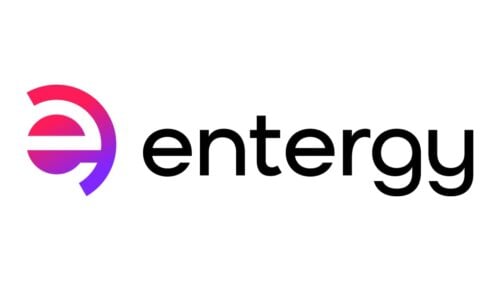
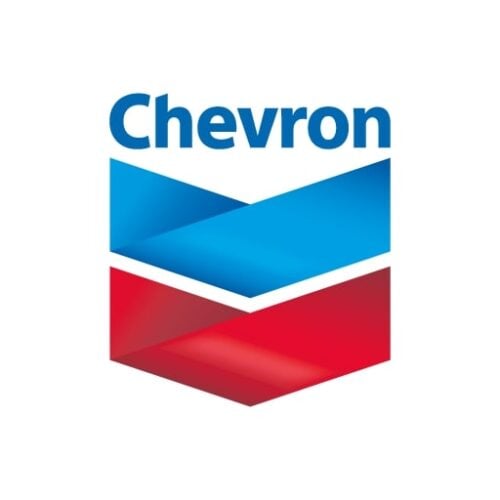
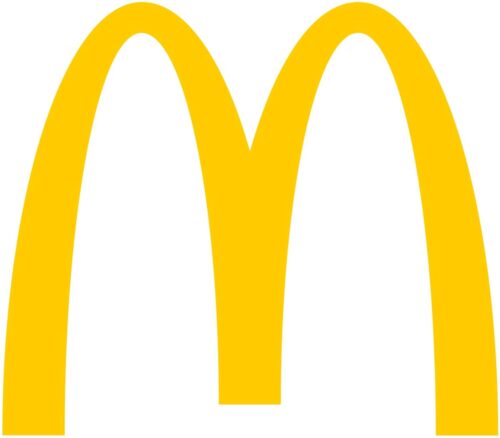
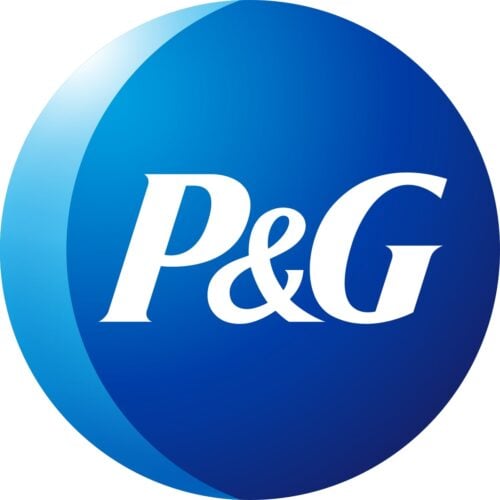
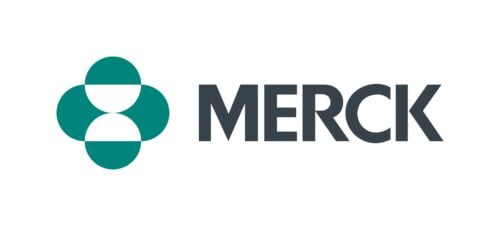



 Overview
Overview Tags:
Tags:










